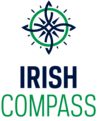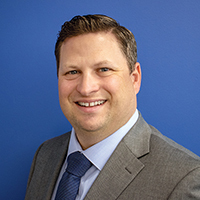Law

Law
The legal profession is a large industry that is an integral part of our daily lives; it analyzes and interprets laws and regulations. Lawyers provide legal advice and representation to those who have been harmed by defective products, fraud, or unfair employment practices; those who want to buy or sell a house, start a business, or create a will; and those who have been accused of a crime—to name just a few services provided by lawyers. Attorneys also play key roles in the business world; in local, state, and federal court systems; in government agencies; and in nonprofit organizations. They provide legal advice and representation regarding hundreds of issues such as labor/employment, intellectual property, mergers and acquisitions, civil rights, national security, the environment, and bankruptcy.
Attending an ABA accredited law school to obtain the Juris Doctorate degree and passing a state bar exam is required to practice law in a state within the United States. The most common career path for law students is to practice law within a law firm or to clerk for a judge (1 or 2 years usually) in order to learn specific practice areas of law. Although the skills gained through law school are transferable to many other career areas, if you are uncertain about practicing law, then it’s wise to consider other types of graduate schools that specialize in the career area of specific interest to you. If you are considering law, explore the field through informational interviews with attorneys practicing different types of law in diverse work environments and/or working full-time as a legal assistant in a law firm after graduation.
Job Title Examples:
- Lawyer
- Judge
- Paralegal
- Legal executive
- Court clerk
- Coroner
Skills Needed:
- Oral and Written Communication
- Analytical and logical reasoning
- Time Management
- Organization
Further Education:
-
Attend an ABA approved Law School: earn a Juris Doctor degree
- Take and pass the Law School Admission Test (LSAT)
- Identify law schools and complete applications - Our website contains further detailed information on applying to law school.
- Pass the Bar Examination for the state in which you want to practice
Find Opportunities

Using IrishCompass, LinkedIn, and ND’s alumni association directory, myND, is the best way to begin networking. Building relationships through networking is a key factor when it comes to finding out about opportunities in this sector. Stay in touch with ND alumni groups in whatever city you’re pursuing a career - the chances are good that they will be willing to help you get connected and find potential opportunities.
Job Databases:
Law firms hire recent college graduates as legal assistants, project assistants and sometimes as paralegals (the job title varies). Federal government agencies also have paralegal specialist positions for recent college graduates. Interning in a law firm can be a good experience if a lawyer has the time to train you or select a more established law-related internship.
-
To prepare for a career in law while at Notre Dame:
- Study what you love, obtain the best GPA you can
- Gain research and writing experience
- Take a class related to legal or policy issues
- Talk to a number of Notre Dame alumni practicing law
- Intern in career areas that interest you
- Obtain a law-related internship
- Attend the law school fair and law career related workshops
-
Figure out how law touches the areas that interest you
- American Bar Association Undergraduate Internships
- Brennan Center for Justice Internships
-
Brad Traverse Jobs and Internships
- Good resource for policy; legal, project or case assistant; regulatory; compliance
-
Capital Fellows Program (Judicial, Executive, Legislative)
- Fellows spend 10-11 months as part of a cohort working in a Legislative, Executive or Judicial Branch office
- CareerShift
- DC Public Defender Service Criminal Law Internship Program
- Department of Justice Antitrust Division Paralegal Specialist
- District of Columbia Courts Undergraduate Internships
-
EarthJustice Internships
- Interns at Earthjustice work in professional areas such as Communications, Diversity, Equity, and Inclusion, and Policy and Legislation
- Federal Communication Commission Internships
- Georgetown Criminal Justice Investigative Internship
- Idealist.org
-
UCAN
- To access, create an account with your ND email. UCAN provides a collection of internships from 20 top institutions
- U.S. Supreme Court Judicial Internship Program
- Undergraduate Internships with General Counsel at DOE
- Vera Institute of Justice Careers
- Leadership Conference on Civil and Human Rights undergraduate internship
-
California Judicial Fellowship Program
- Work for 10 months in courts or Judicial Council offices across California, gaining direct experience in the administration of a complex and changing court environment
-
SEO Law Fellowship Program
- Offers talented incoming law school students of color the opportunity to work at a top law firm during the summer before law school
-
K&L Gates Lloyd Meeds Policy Fellowship Program
- General description; check Handshake for posting during each semester
-
Holland & Knight Public Policy and Regulation Internship Program
- A fall, spring and summer internship program geared toward current undergraduate students
- National Immigrant Justice Center
- Law-related internships in DC
- Public Interest law organizations to check within most any city/state
- Prosecutor’s Office
- U.S. Attorney’s Office
- State’s Attorney’s Office
- Public Defender’s Office
- Legal Services
- Courts
- 5-6 hour, virtual, hands-on experience through Forage; search for law or legal career field-related experiences.
Industry Timeline
Law-related summer internships and full-time opportunities are usually posted two, maybe three months prior to the start of the internship. Start researching in January, plan to apply maybe mid-February, but more likely mid-March through early May. Begin searching and applying for full-time law-related opportunities, such as paralegal, legal assistant, case assistant or project assistant, usually no earlier than February. Law-firm postings for undergraduate-related opportunities for a May hire date might be posted in March or more likely in April. Law firms or public interest law organizations rarely recruit at career fairs or on campus for these non-attorney positions.
Applying and Interviewing
Resumes
Stress research and writing when applying to law related opportunities. This can include research papers that present an argument or analyze a policy or legal topic, a policy brief, a class project that analyzed, debated, or argued for a topic. Review resume samples that include a research section.
Cover Letters
A cover letter introduces you to a potential employer. Use the position description to make specific connections between your skills and experience and what the organization is looking for in a candidate. The cover letter should be concise and well-written - if a potential employer reads your cover letter and is intrigued, they will read your resume. Your cover letter should not repeat your resume verbatim but enhance it. Together the cover letter and resume can help land you an interview. Review our guide on cover letters for more information on how to construct one.
Interviewing
Paralegal Interview
Top three preparation suggestions from a Notre Dame alum to prepare for the paralegal interview:
1. Study the law firm's background, practices, and most importantly the practices of the attorneys with whom you are interviewing.
2. Memorize three questions for each interviewer. For at least one of the questions, refer to something you found through your research on them.
3. Practice your responses out loud with a friend before the interview. This will help your answers seem more natural.
Tips from a Notre Dame Law Alum
Most interviews will contain a mixture of resume based questions (questions about your past experience) and behavioral based questions (your ability to handle prospective situations at work). Most positions will begin with an interview that has a mix of these questions. Review our guide on common interview questions.
Preparation is extremely important for interviews. Research the company/organization, current and previous projects they’ve worked on, and even the people that you’re interviewing with. This will not only help provide talking points but will show your knowledge and genuine interest in the position. Utilize our resources on how to best prepare yourself to excel in your interview.
Online Resources
Pre-Law Resources
- Pre-Law Student Board - An initiative of the Meruelo Family Center for Career Development
-
Pre-Law Advising
- Meruelo Family Center for Career Development, Undergraduate Career Services
-
Prelaw Advising for Business Undergraduate Students
- Mendoza College of Business
- Law School Admissions Council (LSAC) Discover Law
- LawHub at LSAC
- Pre-Law Services at AccessLex
- Road Map to Preparing for the LSAT
- Bureau of Labor Statistics Lawyer Employment Outlook
-
Martindale Lawyer/Law Firm Locator
- Search for Notre Dame Law School alumni or law firms by location and/or practice areas; network to search out legal assistant opportunities. Larger law firms will hire full-time legal assistants – search for opportunities on the firm’s website or through CareerShift
Public Interest Law
Patent Law
- American Intellectual Property Law Association
- American Bar Association Section of Intellectual Property Law
International Law
- United Nations International Law
- American Society of International Law
- International Law Association
- International Public Interest Law
Various Practice Areas
- Cybersecurity and Law
- Emerging Areas of Law (2022)
- Overview of 260 Practice Areas
- ABA Topics & Resources - See Practice Specialties
Campus Resources

Career Counselor:
Ryan Patrick
Assistant Director, Government, Policy and Law Careers
Schedule an Appointment
Student Clubs:
Employers Examples:
- K&L Gates Government Affairs
- Georgetown University Law Center Criminal Justice Clinic
- White & Case, LLP
- Federal Trade Commission
- U.S. Supreme Court
- Holland & Knight Public Policy and Regulation
- Capital Fellows Program
Join Handshake:
Personalize your feed, explore your curiosities, and get updates that matter to you. Handshake is a dynamic system that works to match students with the most relevant resources and opportunities offered by our office including:
- Access to personalized job recommendations – This is based upon major, career interests, and profile information such as skills and experiences. When students fill out their profile, they are able to see jobs and internships that match their interests and skills.
- Ability to schedule one–on-one counseling appointments – Counseling appointments can be scheduled through Handshake and held virtually via Zoom.
- Ability to Interact with employers – Students can research contact information for local and national employers. Employers can also message students with opportunities and information.
- Connect with students across the country - Students can interact with their peers through messaging, get tips and advice, as well as network.
- Search for and apply to open positions - On Handshake, students can see jobs and internships posted specifically for them as well as employers actively recruiting from Notre Dame.